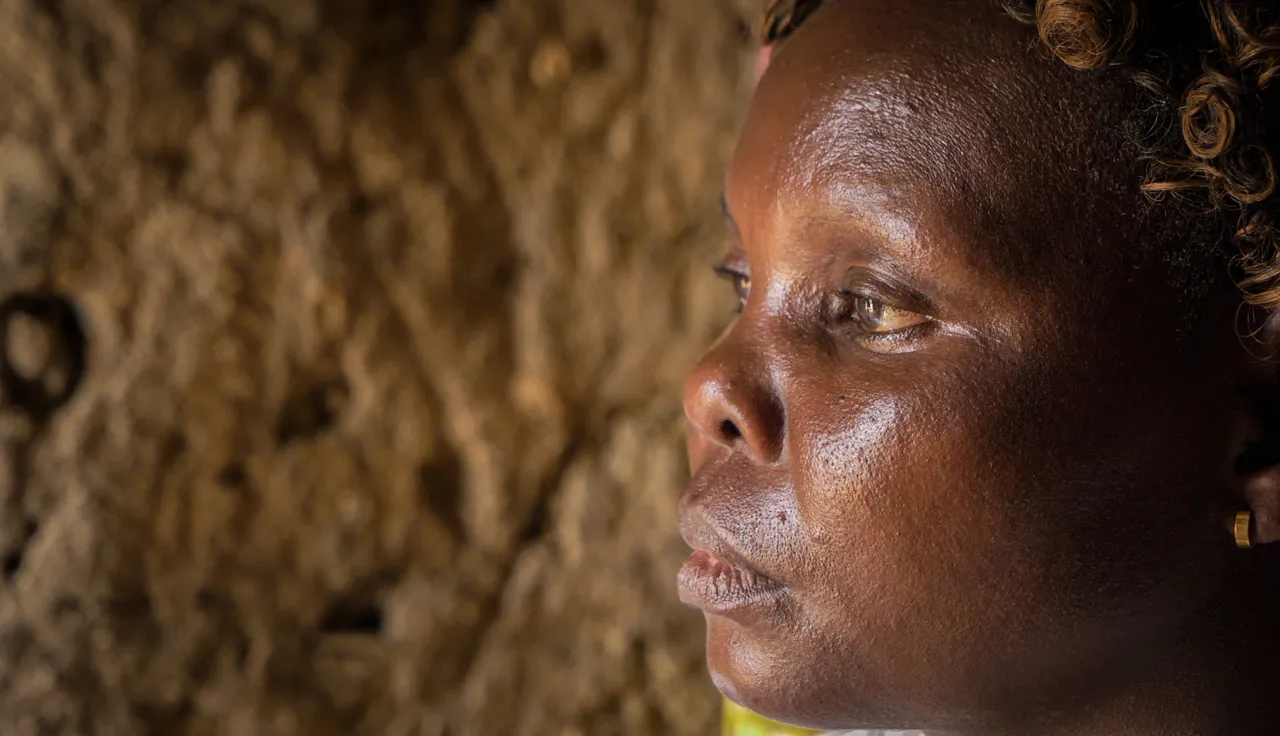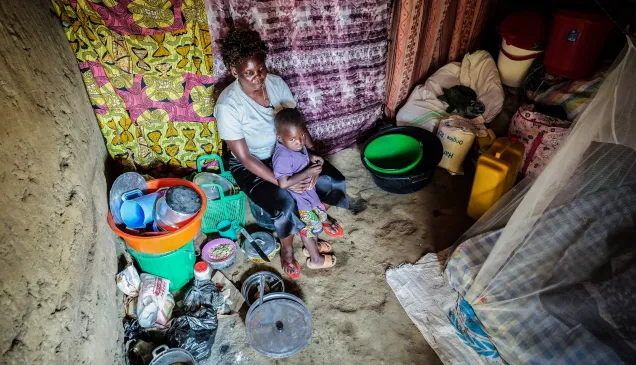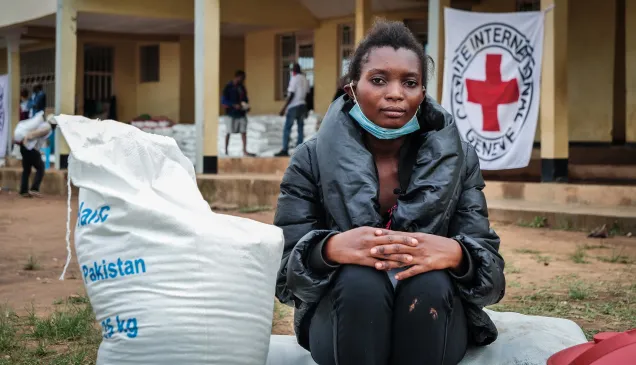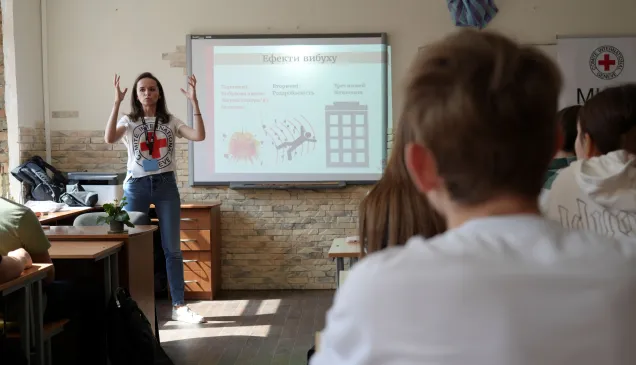Where next? Escaping violence in the DR Congo

In Ituri Province, north-eastern Democratic Republic of the Congo (DRC), a staggering number of people are constantly forced to flee attacks by armed groups. This is Jeannette and Brigitte’s story.
"When my village, Tchabi, was attacked by armed men, I fled with my four children to Boga, more than 15 kilometres away," said Jeannette Bigabwenda, age 30. "Two months later, we had to leave again for Bukiringi, another village. Whenever we hear that there might be an attack, we go."
Jeannette is living with intense trauma. "My eldest daughter, who had married, was burned alive with her baby in her own home. My husband was kidnapped, and we haven't heard from him since." Her eyes filled with tears as she told the story.
Violence has surged in Ituri Province since late 2017. Armed men target not only State services but also civilians.

Jeannette Bigabwenda, used to working in the fields, has not found a job in the town of Bunia.
Surviving with nothing
After changing locations three times in three months, Jeannette and her family moved to Bogoro in the south of the province with the help of a religious group. But the reprieve was short-lived. "We found out that Bogoro is not safe either. So then we came to Bunia," Jeannette said.
Bunia is the capital of Ituri Province. According to the United Nations Office for the Coordination of Humanitarian Affairs (OCHA), there are at least 30,000 internally displaced people in the city. All have fled atrocities committed by armed groups in the surrounding area.
Thousands of displaced people flow into the city whenever there are fresh attacks. Some pack into crowded displacement sites, while others stay with host families.
"I'm not afraid anymore now that we're here. We can sleep in peace," said Jeannette.
When she first arrived in Bunia, Jeannette was taken in by a church congregation. But the housing conditions were so unstable that she decided to look for somewhere else to stay after three days.
"I sold my new mattress so I could afford a place on the outskirts of town," Jeannette explained. She managed to find a single-room mud hut, but she has close to nothing else. She and her children sleep on the bare ground. With no income, she does not know how she will make her next rent payment of 15 euros.
A hobbled humanitarian response
The presence of armed groups in Ituri Province and the spread of ethnic violence has worsened an already alarming situation. According to OCHA, there were over 1.7 million internally displaced people in the province in July 2021, 14% of whom were living in shelters and the rest with friends and family.
Again according to OCHA, over 2.8 million people were experiencing high food insecurity in Ituri during the same period. Medical facilities and schools are often pillaged and destroyed, leaving thousands of people without health care or education.
The volatile security situation has prevented humanitarian organizations from reaching many parts of the province, because armed groups will not guarantee them safe passage. In the current climate, it is impossible to meet the population's needs.
Rising food insecurity
Bunia's inhabitants may consider it safe, but people in the city and the surrounding area still live in fear of armed attacks, and urban violence is also a very real threat. The presence of armed groups on the main roads and in agricultural areas also causes regular shortages of basic goods and threatens food security for the area's large population.

Brigitte Toculeba during a food distribution: “In Tchabi, I was a primary school teacher. I had a normal, happy life."
Brigitte Toculeba is displaced just like Jeannette. Every day, she lives in harsh conditions full of uncertainty. She fled armed violence in Tchabi with her eight-month-old baby and also ended up in Bunia, 135 kilometres from home. She was taken in by her aunt but struggles to make ends meet.
"Finding food is the hardest thing. Even nursing a baby, sometimes I can only eat once a day," Brigitte said. The baby's father is not in the picture. "In Tchabi, I was a primary school teacher. I had a normal, happy life," she added wistfully.
Our response in Ituri Province in July–September 2021
- Seed distributed to 8,368 resident households and host families
- Food and household goods provided to 5,043 displaced families in Bunia and Irumu Territory
- Free telephone service provided to displaced people in Bunia, Singo and Bogoro for contacting family members from whom they have been separated
- Medicines and stabilization materials donated to Bunia General Hospital for treating wounded patients
- Short-term primary health-care support provided at the Singo, Bogoro, Sota and Nyakunde health centres (including referrals to secondary care in Singo and Bogoro) to ensure access to care for displaced and vulnerable people
- Psychosocial support staff from a local association in Singo trained to provide mental health services.
The ICRC had withdrawn from Ituri Province following the killing of six of our staff members there in 2001. This is the first time we have provided aid at this scale in Ituri since that tragedy.



